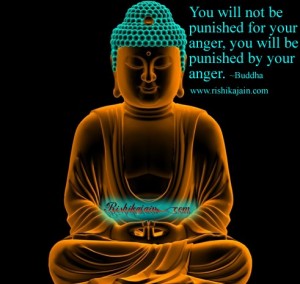“Love stretches your heart and makes you big inside.” – Margaret Walker
My take on love comes from watching what is actually happening inside the body when we are experiencing the sensation known as love. This is something that anyone can observe or directly experience if they just take the time to watch. I come at this topic first from a detached, precise perspective, and second from an attached perspective as a human who wants to expand love. To embrace the whole reality of love one embraces both the detached and attached perspective, giving both their due.
Love is a feeling we have inside of our body and is a reaction to thoughts.
Generally, we learn how to love from our parents or whoever nurtures or takes care of us when we are infants. As this person comforts us, say by feeding us relieving our discomfort of hunger, we learn to associate the image or thought of this person with that comforting, and we develop a habit of relaxing around the thoughts of this person. Relaxing is not just a physical thing, or just something we do with the muscles of the body, it is also something that we do with the nerves.
Therefore, love is a two-part process; the first is the thoughts and the second is the reaction of relaxing the nerves and the muscles around that thought.
In the beginning, our thoughts are associated with some material things like the person who nurtures or takes care of us, as we mature, our thoughts can be associated with anything, even a concept. As children our experience of love comes from thoughts of people or things that produce the good feelings
This practice or habit of relaxing is healthy in that it removes the ‘dis-ease’ we may be experiencing when we hold onto some thought or habitual tension in our body. This is why spiritual teachings encourage us to love this or that so that we can develop a habit or skill of relaxing around our thoughts of various things that traditionally would have produces tension or ‘dis-ease’ within us.
We call these traditions ‘spiritual’ because they address what we are inspired or motivated to do; the word ‘spirit’ has the same root as the word ‘inspire’. We are naturally motivated to seek the release of tension the same way that water is naturally motivated to flow downhill.
Therefore, when any tradition encourages us to practice love or any positive emotion, they are encouraging us to practice relaxing around our thoughts.
Some thoughts we have we have developed a habit of contracting around, and we call this fear. A spiritual tradition might say that “love drives out fear,” for if we practice love (relaxing/expanding) around a fear producing thought we will eventually re-train ourselves to react by relaxing to that thought and thus relieve the tension, dis-ease or negativity we had experienced.
Learning to love is like learning to control our bowels and bladder; it takes practice at first but later becomes natural.
As I said above, the first part of learning to love is the thought, which is why there is no much emphasis on thinking about this process. This can come in the form of a spiritual or religious tradition, which tries to get us to think in ways that allow us to relax around thoughts that traditionally produce contraction or fear. Such a way of thinking might be to “love your enemies” since the idea of an enemy is of one who seeks to do us harm, we would naturally develop a habit of contraction or fear associated with ‘enemy.’ Since mostly the reality is we are just thinking about our enemies and not actually being injured by them, then we are being taught to love the thought of our enemies or to relax around the thought of those who have or might hurt us.
Once we get that love is healthy and what we want to experience it more, then we recognize that ANY thought we have we want to develop a habit of relaxing around. We then will no longer need to discern between this or that type of thought, we just relax around all thoughts. Hence, we will no longer need the philosophies or theologies and we can go back to being innocent “like the children to enter the kingdom of heaven.” This enables what we call “unconditional love”, for we choose to love without conditions or criteria since we recognize that love is what we want to experience.
This is the objected behind the teachings to “love God,” where God is a concept that implies the creator of all that is. We are practicing to love ALL that is, since it was created by this creator. At an even higher level, we are encouraged to love the process of love, where “God is love” and we are taught to love God/love. This moves us away from any mental activity that may be a limitation to our practice of relaxing and we practice loving the process itself.
Much of the ‘how to love’ teachings are about the science AND art of love. The science deals with the understanding of how the human instrument works; how to relax both the nerves and muscles of the body. The art deals with developing the sensitivity and the skill or habit of actually operating the human instrument.
I am currently writing a book that will detail my observation on both the science and the art of loving, particularly loving ourselves. To keep informed on this book please subscribe to this blog.
